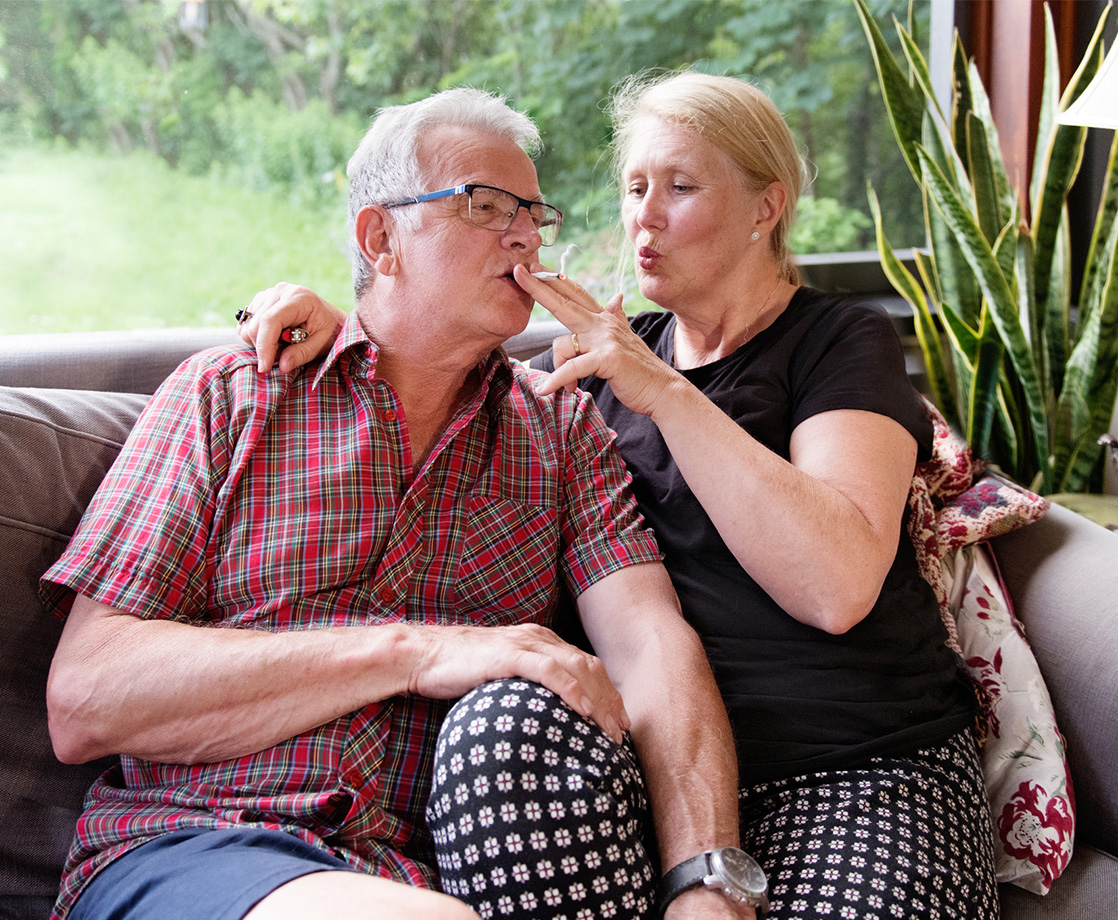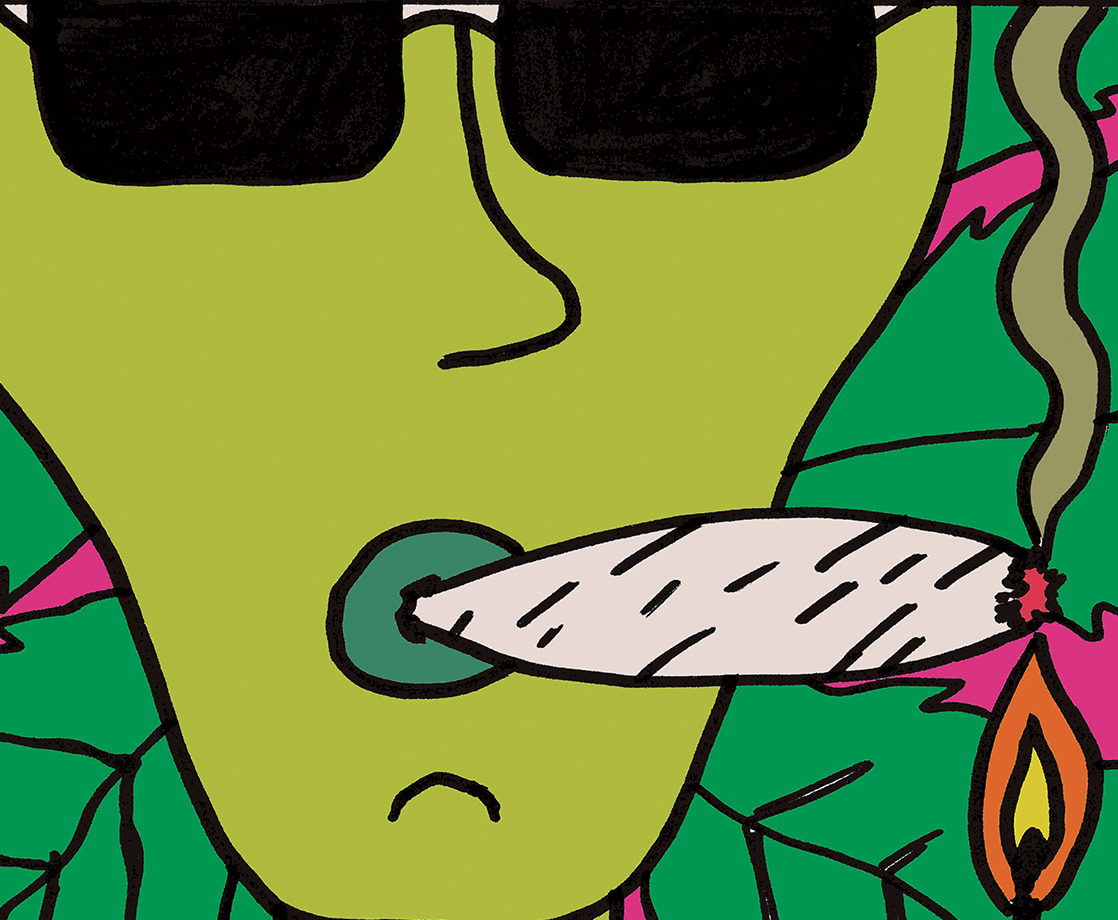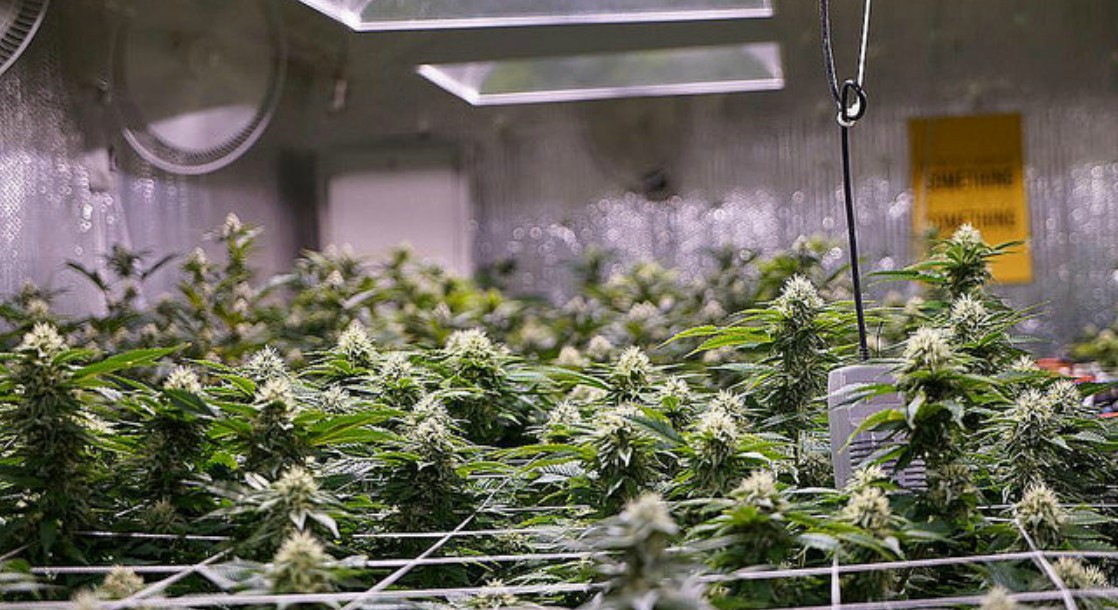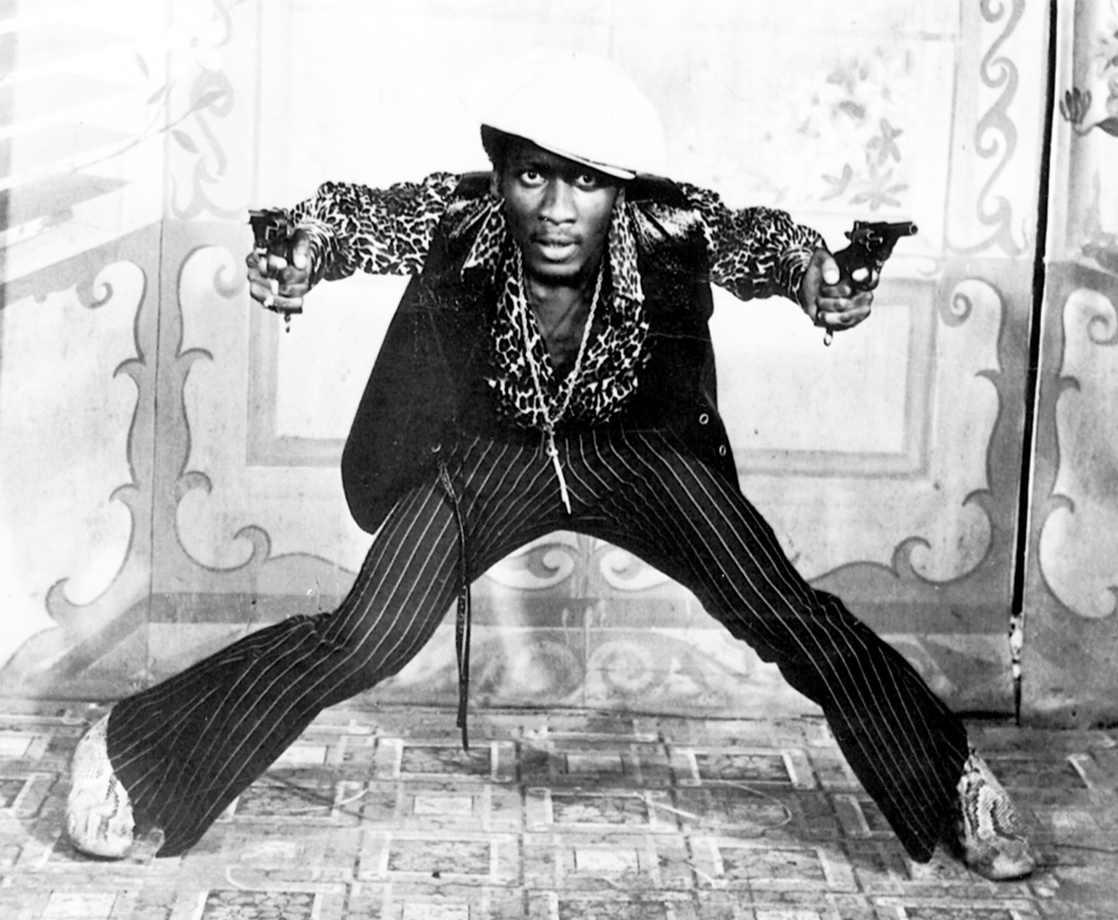There are many misconceptions about the average cannabis consumer. We are frequently characterized as being of a lower socioeconomic and education level, under 30 years old, and that we smoke just to get high — with little to no regard for the plant’s medicinal properties.
Now that more states and countries are legalizing marijuana for recreational and/or medicinal use, people’s attitudes about the once-demonized plant are shifting. People are seeing through the myth that weed is a gateway to dangerous drugs like cocaine and heroin. They’re finally questioning the fallacy that cannabis’s addiction potential is equal to that of alcohol, opioids, and cigarettes.
A recent study conducted by three researchers, William Kerr, Camillia Lui, and Yu Ye, revealed some pretty interesting statistics about the “typical” cannabis consumer. The only age group to show a rise in consumption were those individuals aged 40 and older. Between 1984 and today, the usage among 18 to 29-year-olds hasn’t changed much. By contrast, during the same 35-year period, usage among people aged 40 and older rose approximately 11 percent.
Although the conclusions point to an increase in use, I contend that all it exposes is a disinterest in being counted prior to laws changing and attitudes toward pot use relaxing. Just because these consumers fell off the radar of those tracking their use doesn’t indicate they necessarily stopped using.
I interviewed five people age 46 and older about their cannabis consumption. They’re from different corners of the globe, and a variety of different places, some where cannabis is legal, and some where it is still illicit.
Bob, Age 53
Bob lives in Washington State. Although California was the first state to legalize marijuana for medicinal use in 1996, Colorado and then Washington were the first states to legalize recreational use of the plant in 2012. Bob’s use predates legalization. He’s been using it for the last “20 or so years.” Bob uses weed to treat pain as well as for pleasure and spiritual reasons.
I asked Bob what pharmaceutical drugs he currently uses. He said he continues using SSRIs for depression. Being curious, I asked him why he hasn’t considered cannabis for his depression. He said, “I believe weed could be more effective. While I believe my current state leads me to believe I could go without my SSRI, but that idea is difficult to know without trying to get off of them first, which scares me.”
Bob made the decision to use cannabis in 2005 when he was 39-years-old, because his doctors were no longer concerned enough to ask him how he was feeling. On the topic of how his friends and family feel about his consumption, Bob explained, “Most are caught up believing what they were told and have little room for new truths in their lives. I am a retired veteran. However, my chronic pain has improved. My wife isn’t entirely supportive, but it’s also not an issue in our marriage. Despite the improvements I have experienced using cannabis, my wife is a long way from using or advocating weed’s effectiveness.”
Joann, Aged 59
Joann started using marijuana about a year ago to treat symptoms of fibromyalgia. She still uses Big Pharma’s drugs to treat her high blood pressure and depression. She may not know the National Center for Biotechnology Information (a division of the National Institute of Health) published a study in the Journal of Psychopharmacology about the effects of CBD on generalized social anxiety disorder. The findings: “CBD was associated with significantly decreased subjective anxiety.”
Joann made the decision to use cannabis after talking with an acquaintance who has successfully been treating her fibromyalgia with cannabis for years. “She makes her own edibles. She told me it was the only thing that helped her live with fibromyalgia.”
It’s very recently legal for medicinal use where Joann lives (she didn’t give me her location), but she noted, “It will be more than a year before it’s available for sale. I can’t use it regularly and I only use it if someone I know has it.”
Her friends and family are “420-friendly,” however they were surprised and happy she has found it helpful for fibromyalgia and, more surprisingly, with her pain and anxiety. Her employer has no idea she uses. Being what Joann calls “straight-laced,” she didn’t use it when she was younger. Because she now has so much more knowledge about cannabis, she thinks about the “pain pill addiction this country has developed” and wonders “how much different it would be if people had a natural effective tool to handle their pain.”
Joe, Age 61
Joe likes cannabis for his occasional aches and pains and because it helps him sleep. Many consumers report the positive outcomes strains high in THC have on insomnia. Joe doesn’t use any of Big Pharma’s treatments. Weed is legal for both medicinal and recreational use where he lives in Washington State. Joe also likes getting high.
His friends and family are supportive of his using. He noted that he has friends who don’t drink because they’re friends of Bill W’s and either smoke themselves or are supportive of Joe using cannabis. He told me his sister owns a bar and she is behind him 100%. His daughter — who also works in a bar — concedes cannabis is better than drinking.
Joe started smoking in the 1960s. He’s also several times gone a decade or more without consuming cannabis. Joe wished I had asked him whether I thought weed is a healthier alternative to alcohol. He also wished I had asked about marijuana’s influence on a relationship versus that of alcohol.
Personally, I do believe cannabis is far healthier than alcohol, however my opinion isn’t simply anecdotal. A study published in The Lancet cited the following: “Among the population aged 15–49 years, alcohol use was the leading risk factor globally in 2016, with 3·8% (95% UI 3·2–4·3) of female deaths and 12·2% (10·8–13·6) of male deaths attributable to alcohol use.”
To date there have been no deaths caused by cannabis alone. On top of that, if the approved indications list in states where marijuana is legal is any indication, cannabis is the clear winner in a two-team race between itself and alcohol for actually treating anything.
While non-consumers can and do frequently take note of consumers being couch-locked and even what I like to call “stuck on stupid,” unlike alcohol, violence is not a by-product of cannabis use. I know I am far more agreeable and easier to get along with when I’m stoned, and on the few occasions I have been drunk in my life, I couldn’t say the same.
Tina, Age 46
Tina lives in the UK where, she explains, weed isn’t legal, but “CBD oil only is legal as a ‘food supplement’ and what people have been using as a get-around. There was talk about legalisation, but everything is on hold whilst we collectively commit international political suicide — I’m not a Brexit fan! THC is absolutely forbidden in the CBD oil, which is why it didn’t work for me, and there is no regulation or continuity in supply, unless you go to Holland & Barrett, a huge national health food shop, but then it’s so weak no person I know who has tried it has any real benefit. There are some online sellers which are good, like Simply CBD, who provide detailed advice and a consistent product, but again no THC. We are still campaigning for legalisation and inclusion of THC.”
Tina uses cannabis (which she has to cop illegally from someone she’s trusted for years to get the strains she likes) recreationally and medicinally for 28 years, but primarily medicinally since she was 23, so for 23 years.
She uses cannabis to aid sleep, relax muscles, ease chronic pain from osteoarthritis, calm depressive periods and panic attacks, calm neurons firing in her brain (epilepsy), and to help delay treatment for her form of cancer (a rare type of treatable leukemia). Unfortunately, while her supplier is trustworthy to get the strains she likes, this person is not always reliable, which means sometimes she has “breakthrough” symptoms until she can get her hands on weed.
I asked her whether she still uses any Big Pharma drugs for her medical conditions. She told me, “Sodium valproate for epilepsy so I don’t have seizures (fully controlled since I was 17), codrydamol for osteoarthritis (recent change from cocodamol; it addresses bone pain), citalopram for depression (reduces panic attacks and symptoms). Cannabis complements them rather than the other way round, as it means I don’t use painkillers every day, avoids building up a tolerance to the painkillers, minimises potential liver/kidney damage from the long-term effects of using all the forms of big pharma meds, and means I am on a much lower dose of citalopram than I otherwise would be. The prescription medications can interact with each other so minimising dosage through smoking maximises the efficiency of the drug. The prescription painkillers can make me dozy and stupid if I take too many; balancing them with the weed means I can reduce daytime usage to nil on some days (rare) and can maintain my full-time job.”
Tina has always known pot was helpful for her epilepsy, but since researching weed, she has realized it could help with the other conditions she has, and as she says, “Therefore it became a tool in my health kit, as well as a pleasure.”
Tina is out with everyone she knows: friends and family. Her work colleagues and supervisors are fully aware and are supportive of her cannabis consumption. I asked her if she’d been willing to cease all consumption if it were causing problems in her personal or professional life. She said she would if it meant losing her job, but that by going off she’d be unable to work full time, so the point is moot.
She added, “I would be willing to be arrested and charged, as it is essential for my health and my health comes first. However, that would ruin my career. This is something I consider often, as it is illegal in the UK at the moment and is why I campaign for change whenever I am able. I am aware it supports exploitation and degradation of people within the groups who import and sell at the higher levels. It also means effective and useful treatment is unreachable by many through lack of access and prejudice against cannabis. Misinformation literally prevents effective and useful treatment.”
Tina regularly blogs about this and other topics related to advocacy of marginalized people.
April, Age 57
April began smoking weed in 2005 following a 43-year hiatus and after trying Ambien and Lunesta, both of which had side effects she didn’t like. Not only did cannabis work well without side effects, but there was no risk of sleepwalking and “ending up on the side of the road because I got in the car and started driving.”
Her decision to transition from prescription sleep aids to marijuana was based on her experience working as a psychiatric nurse and certified screener for 12 years. “I had several patients disclose to me they’d been sleep driving. They had no idea how their truck ended up 15 miles from home or talking to family while stumbling around the house literally bumping into walls.”
April smoked as a teenager and stopped when she was 20. In 2005, her husband gave her weed to help reduce stress and related insomnia. She was was convinced of its safety and efficacy from the first time she used it as an adult.
New Jersey legalized medicinal marijuana in 2018 after governor Chris Christie left office. April couldn’t be happier her state is “just inches away from legalizing weed for recreational use.” Her friends and family support her decision to use it, with one exception. She doesn’t flaunt it in her 92-year-old mother’s face. She says all in her work crew use it either medicinally or recreationally, and in the 25 years of being a registered nurse, she has never once been tested.
April gave me a scenario about the dichotomy of consuming that she doesn’t love. “When you work for child protective services and a bioparent tests positive for THC. It’s a problem when the social worker taking your case in front of the judge smokes! Once it’s legal recreationally, it’s going to have an impact on those types of situations. They still don’t know how they are going to handle it. It’ll be interesting to watch.”
Sarah, Aged 52
I smoked very briefly as a teenager. I might have continued using, but my middle brother overdosed on cocaine mixed with PCP (angel dust) when I was 15 and he was 18. Like a great many people of my generation, I was raised on anti-drug slogans like D.A.R.E. and former first lady Nancy Reagan’s “Just Say No!” Both of them touted pot as a gateway to more dangerous drugs like cocaine and heroin. My parents used my brother’s OD as an opportunity to warn me that the same could happen to me if I continued smoking pot.
If it weren’t for the fact that I write a lot about addiction, I probably wouldn’t have realized the gateway myth and the so-called ‘War on Drugs’ was propaganda started by former president Richard Nixon as a way to incarcerate African Americans.
My “aha moment” occurred a couple of years before Puerto Rico legalized marijuana for medical use by executive order in 2015. My doctor and I were concerned my continued use of Vicodin to treat chronic pain and migraines exposed me to liver damage. I had been using it for about 25 years after I fractured my back when I was 18. Although I never developed a dependence or addiction to it, liver damage was a real concern.
My doctor is what I’d call a country doctor. If she can find a treatment found in nature, she prefers to advocate its use over the ones manufactured in a lab by Big Pharma. She alerted me as soon as cannabis was legal on Puerto Rico and said I should get my card. Once I was legal, I stopped using Vicodin. It’s been almost two years since I filled a prescription for Vicodin.
In this time I have successfully treated my chronic pain, migraines, and insomnia. Although I got lega permissionl to use it (flower, oils, waxes, suppositories, and occasionally edibles) for those indications, what I have found interesting is that I no longer have asthma and my panic attacks have been reduced from several a day to a couple a month.
I believe two things account for the uptick in cannabis use among middle-aged people and up. Many never stopped using it but because it was illegal, they just didn’t admit to it. The other is, despite the vilification and lies about weed, its medicinal properties are many and have likely been enjoyed by people for around 3000 years. I think it’s pretty clear to anyone who does their own research that cannabis is far more safe and efficacious than most everything Big Pharma throws at us.
Follow Sarah Ratliff on Twitter











